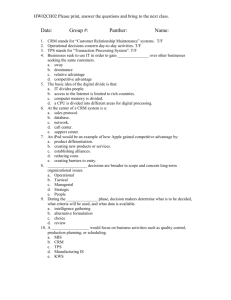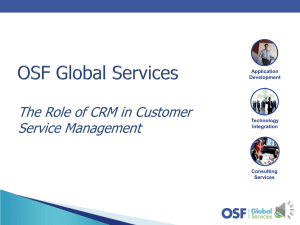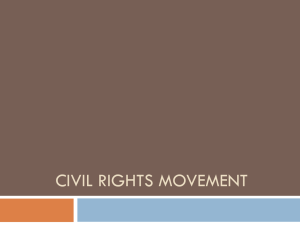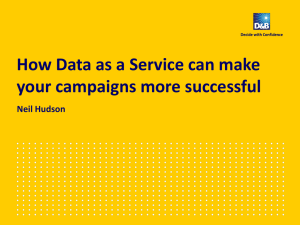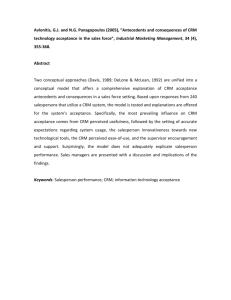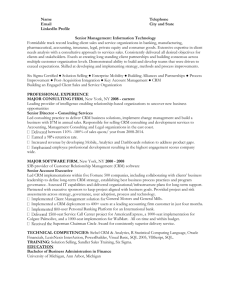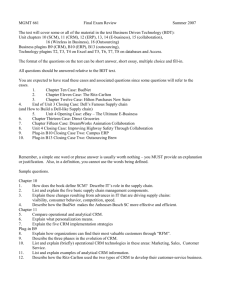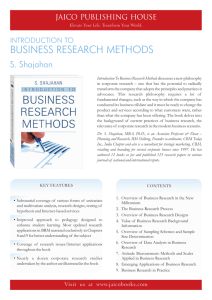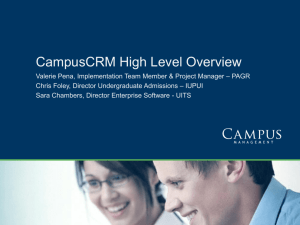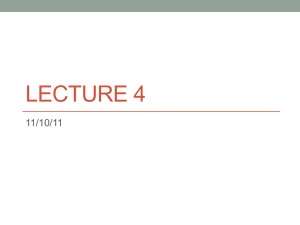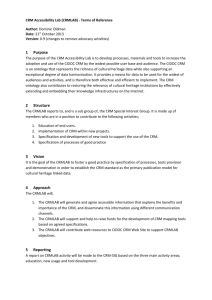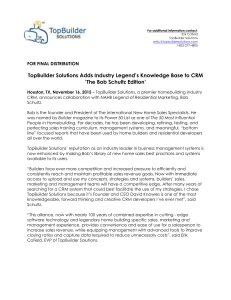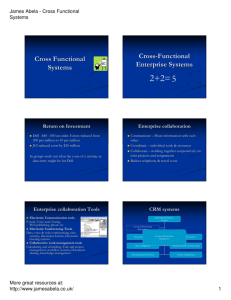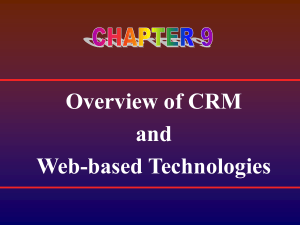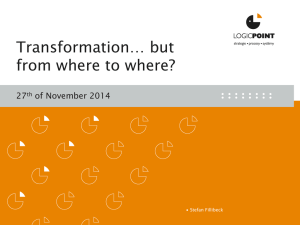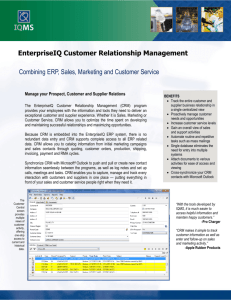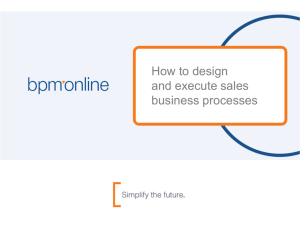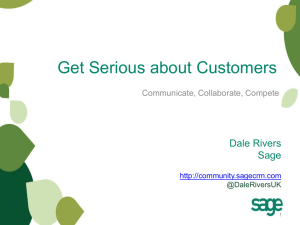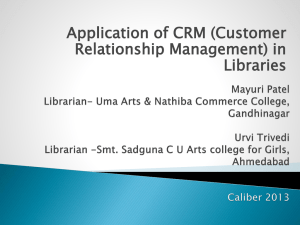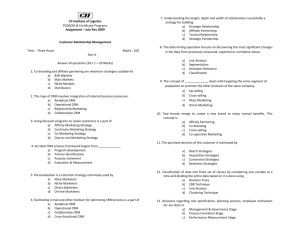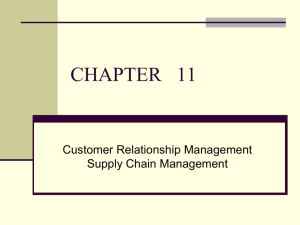CRM Strategy - University of Adelaide
advertisement
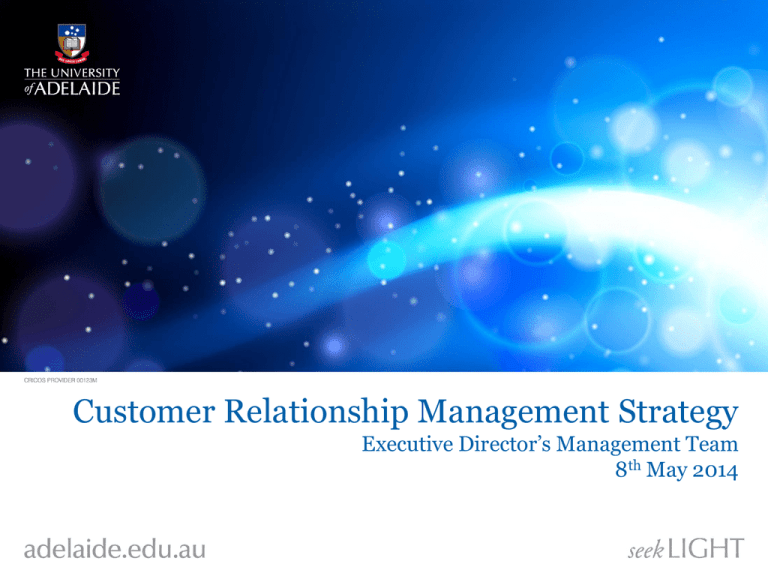
Customer Relationship Management Strategy Executive Director’s Management Team 8th May 2014 Purpose & Agenda Build awareness of the CRM Strategy and explore what it means to you and to this leadership team Why a CRM Strategy? Objectives Framework Opportunities Culture change Discussion Heightened global competition and market Student Prospective Student Alumni Competition for students nationally Donors & Benefactors School/Parent Digital transformation Reach out to a broader student body Manage alliances with graduate employers Intensify collaboration between researchers and industry Agent Volunteer Attract research leaders Create Research Partnerships Strengthen connections with Alumni and supporters Community Increase in consumer choice and career readiness focus Researchers Government and other institutions Research Funder/ Strategic partners Industry/ Employers Reduced government funding Increasing government intervention The University deals with customers according to a single role at a point in time, fractured by function and/or Faculty PROSPECTIVE STUDENT INTERACTION A new approach is needed to provide a single view of the customer and enable customised interactions that deliver mutual value Objectives of the CRM Strategy • Engage and serve customers based on deep understanding, respect and mutual value • Attract, retain and develop relationships through improved management practices • Develop CRM capability across the University through strategy, structures, skills, processes, information and systems to enable: – Better adaptation to changing environment – Tailor student experience to meet individual needs, recognising diversity – Leave those with whom the University interacts with a positive and enduring experience – Engage with organisational customers in a professional and integrated way – Build brand equity, improve advocacy and greater customer value CRM Framework: Customer Lifecycle University of Adelaide 6 CRM Framework: Customer Lifecycle CRM Framework: Needs Based Segmentation • Focus on value to customer • Recognise that customers see value in different things • Define customer groups to focus on their needs and values • Develop and test value propositions for customers and segments • Customise interaction to Undergraduate maximise value International Pathway Students Post Graduate Domestic Disadvantaged ATSI Employed Program CRM Framework: Lifetime value (LTV) • Focus on value to the University • Customer value increases as the relationship develops • Understand the “cost of doing business” versus the return for each customer/customer segment • Use this information to make good decisions, prioritise initiatives and allocate resources • Measure and manage LTV for different customers and customer segments • Allows proportional investment of resources to customer value 26 Areas of Opportunity Acquisition Retention Relationship Development Prospect enquiry and contact management Service enquiry and contact management Positive word of mouth leading to referral Lead and pipeline management Explicitly designed student experience Re-acquisition of postgraduate/HDR Brand integrity Consistency across departments Segment extension Accessing new segments Consistency across channels Alumni/supporter growth Conversion rate First year engagement “At risk” student detection and pro-active intervention 26 Areas of Opportunity Organisational Customer Enabling Organisational customer experience Define and manage the customer lifecycle Business development and opportunity management Manage customer value (lifetime value assessment) Key account management Single view of customer Coordinated engagement and project management Reduce complexity and duplication Reduce transactions/costs (“write once, use many”; clear map of customer information) Automation/workflow Culture Change FROM TO Activity focus Point in time service excellence Outcome focus Proactively create value over time Act within span of control Shared ownership across boundaries Inside-out thinking Outside-in thinking Treat customers the same Treat customers differently based on need and value Questions & Comments? Discussion To what extent will we progress the CRM Strategy through our current performance objectives and plans? Are there opportunities to extend and/or better align what we are doing with this strategy? What opportunity do you see for this leadership team to drive change? University of Adelaide 15
